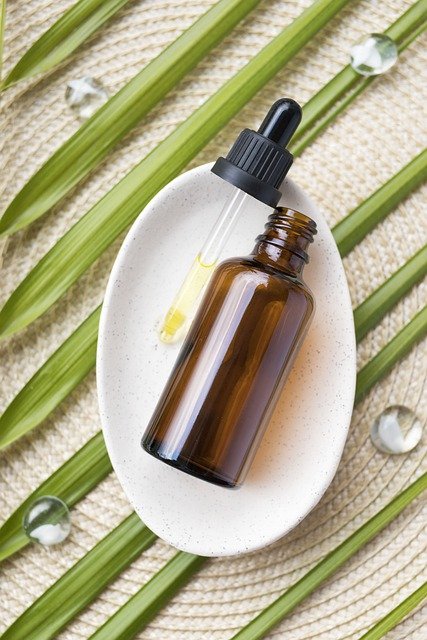Acne is the most common skin condition; factors causing or worsening it include stress, hormonal imbalances, genetics, medications, diet, and high stress levels, to name a few. Most people get acne at differing degrees, including mild, moderate, or severe. Acne commonly grows where oil glands can be found–the neck, face, chest, and back–and treatments can involve antibacterial creams, oral antibiotics, and cleansers.
CBD & Acne Management
Cannabidiol (CBD) is widely used in skin care products as a natural way to clear acne. CBD, or cannabidiol, is an active component of hemp plants. If you are worried about getting “high” from CBD oil, you can put your mind at ease. CBD is non-intoxicating and allows you to reap benefits of the hemp plant.
Our skin has its own endocannabinoid system (ECS).[1] CBD helps reduce inflammation, which can greatly help alleviate this major symptom of acne. Clinical studies have also shown that CBD molecules reduce the formation of sebum.[2] Excess sebum is one of the causes of acne. Aside from that, CBD oil also has antibacterial properties, which reduce the risk of getting or aggravating acne.
CBD & Other Skin Problems
Psoriasis. Aside from acne, CBD, as a tincture, also helps alleviate the symptoms of psoriasis, a chronic autoimmune inflammatory disease where your skin cells have an accelerated growth cycle. This presents itself as reddish eczema, and can be found in the elbows, knees, and the edges of your scalp. Sometimes, it can be found in nails and palms. CBD may help relieve psoriasis flare-ups.
Due to CBD’s anti-inflammatory properties, it can help calm swelling during a psoriasis flare up. It also inhibits the growth of keratinocytes, the primary cells found in our epidermis, or the skin’s outermost layer.[3] Fewer keratinocytes means a more muted skin cell growth cycle.
Dermatitis. CBD also may help with some types of dermatitis. By lowering the production of sebum, tied with its antibacterial and anti-inflammatory properties, it can help keep flare ups manageable and relieve dermatitis symptoms. CBD also helps moisturize the skin by forming a barrier to prevent moisture loss. This helps keep dryness and irritation at bay.
Conclusion
Unlike prescription medication and some over-the-counter medications, CBD oil has little-to-no serious side effects, though further research is needed. You can use it as a preventive measure, to alleviate itching, pain, redness, and swelling of your skin.
If you combine CBD with a balanced diet, a healthy lifestyle, and a good skin care regimen (of which CBD could even play a big part), you may be able to keep some skin conditions at bay. Just make sure that you procure your CBD oil from a reliable source. As always, speak to your dermatologist before starting any new treatment, including CBD.
Heather Smith is the Communications Manager at Sunday Scaries. She’s a composed copywriter and content strategist. She’s also a CBD advocate, promoting a healthy lifestyle free of stress and scaries.
Image Credit: Erin Stone
Image Source: https://pixabay.com/users/erin_hinterland-17114308/
References
- Bíró T, et al. The endocannabinoid system of the skin in health and disease: novel perspectives and therapeutic opportunities. Trends Pharmacol Sci. 2009;30(8):411-420.
- Scheau C, Badarau IA, Mihai LG, et al. Cannabinoids in the pathophysiology of skin inflammation. Molecules. 2020;25(3):652.
- Wilkinson JD, Williamson EM. Cannabinoids inhibit human keratinocyte proliferation through a non-CB1/CB2 mechanism and have a potential therapeutic value in the treatment of psoriasis. J Dermatol Sci. 2007;45(2):87-92.










